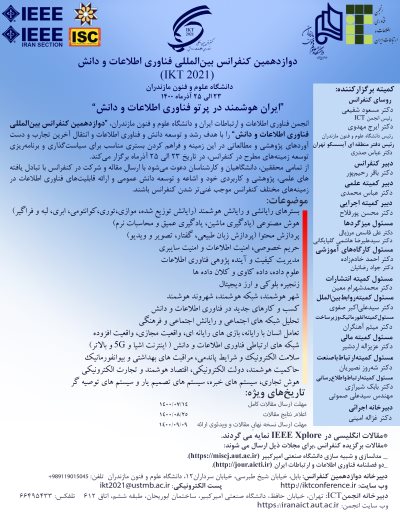0% Complete
Authors :
Keywords :
Abstract :
List of archived papers
Samim Kamyab - Masoud Shirzadeh - Ghoncheh Zand
زهره شعاعی - رسول اسماعیلی فرد - رضا جاویدان
Amirhossein Komijani - Farzaneh Vafaeinezhad - Javad Khoramdel - Yasamin Borhani - Esmaeil Najafi
Sadegh Balouch - Omid mehdi Ebadati
Mohammad Hadi Safari Nader
عطیه منعمی بیدگلی
Negin Bagheri Renani - Elham Yaghoubi - Mina Mohammadirad
سید احسان ملیحی - فاطمه مشایخی کردکلا
نیلوفر ع��دلخانی - حسام عمرانپور
Vahid Safari Dehnavi - Masoud Shafiee




